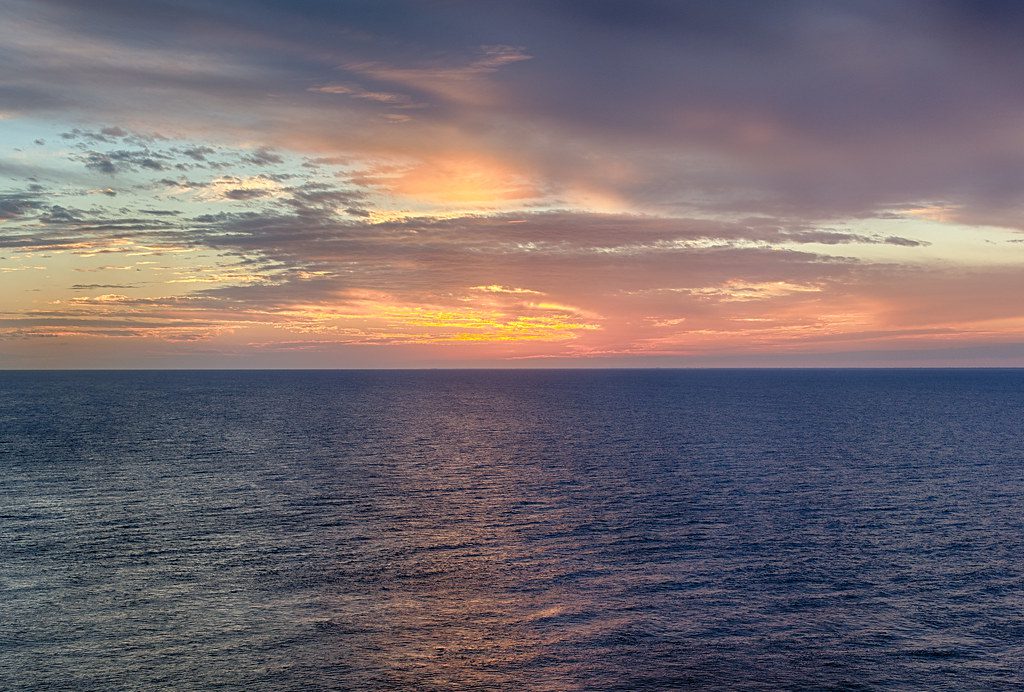World Oceans Day and Reducing Marine Litter

Growing up in San Diego, the feel of soft sand, the blissful sound of waves, and the deep blue of the ocean has always offered comfort and a sense of gratitude. Home has always been near the ocean, which has consequently always been close to my heart.
For those who have spent most of their lives in other environments—whether it’s the desert, mountains, or plains—the ocean may not be quite as special, and I wouldn’t expect it to be. We should have particular affinity for what’s around us, shaping our cultural customs, habits, and experiences in complex ways. The mountain lovers can celebrate their day later; today World Oceans Day warrants the attention of all of us.
The oceans cover 71 percent of Earth’s surface, featuring incredible biodiversity that eclipses anywhere else on the planet. Over half of the oxygen we breathe comes from marine life, with oceans also capturing one-quarter of carbon dioxide, serving as a natural filter for terrestrial life. Our survival and prosperity are contingent on the health of our oceans—something that should bind all people regardless of where exactly they live.
On this World Oceans Day, we should consider a policy proposal like the Federal Strategy for Addressing Global Issues of Marine Litter promoted by former EPA Administrator Andrew Wheeler under the Trump administration. The plan was coordinated with the National Oceanic and Atmospheric Administration (NOAA) with the goal of reducing marine litter, such as plastic and other debris, by both improving waste management and removing existing litter from our oceans. This initiative would allow the U.S. to take leadership in saving our seas, while effectively collaborating with international partners.
Instead of implementing policies of sound stewardship like the Marine Litter plan, we dump billions of pounds of trash annually into the ocean, much of it plastic that takes hundreds of years to naturally degrade. Ocean acidification destroys ecosystems and creates hypoxic zones that are effectively marine graveyards. The typical responses to ocean destruction are uninspiring, to say the least.
One side features indifferent spectators, who push the blame and corresponding responsibility onto corporations and leading polluters like China and India. Others call for dramatic transformations in human activity—ranging from immediately ending the use of fossil fuels to dismantling capitalism—that would condemn hundreds of millions of people into abject poverty and misery.
Of course, there are numerous ways to incentivize good behavior and penalize bad behavior with regard to ocean pollution besides an international EPA initiative. Large scale efforts may be worthwhile, but should not come at the cost of small scale initiatives. Several recent inventions appear promising in reducing ocean pollution, as researchers and entrepreneurs alike search for innovative ways to restore the health of our oceans. Local measures ranging from sustainable fishing practices and reducing plastic use to beach cleanups and planting trees (yes, seriously) can and do make a positive difference. Community-based efforts also feature a twofold benefit: They contribute to ocean conservation while bringing families and neighbors together in a common cause.
Roger Scruton understood the immense value of such conservation, which is about much more than the natural environment:
“There is no political cause for amenable to the conservative vision than that of the environment. For it touches on the three foundational ideas of our movement: trans-generational loyalty, the priority of the local and the search for home. Conservatives resonate to Burke’s view of society, as a partnership between the living, the unborn and the dead; they believe in civil association between neighbors rather than intervention by the state; and they accept that the most important thing the living can do is to settle down, to make a home for themselves, and to pass that home to their children.”
A commitment to conservation recognizes our duty to preserve and protect the beautiful planet we have inherited, as we prepare to leave it to our posterity. World Oceans Day is a reminder to embrace the responsibility that comes with attending to our environment, understanding that it is a privilege rather than a burden, one which our descendants are relying on us to pass down.
Michael Huling is a graduate student at the Pepperdine University School of Public Policy and an editorial intern for The American Conservative.
Comments